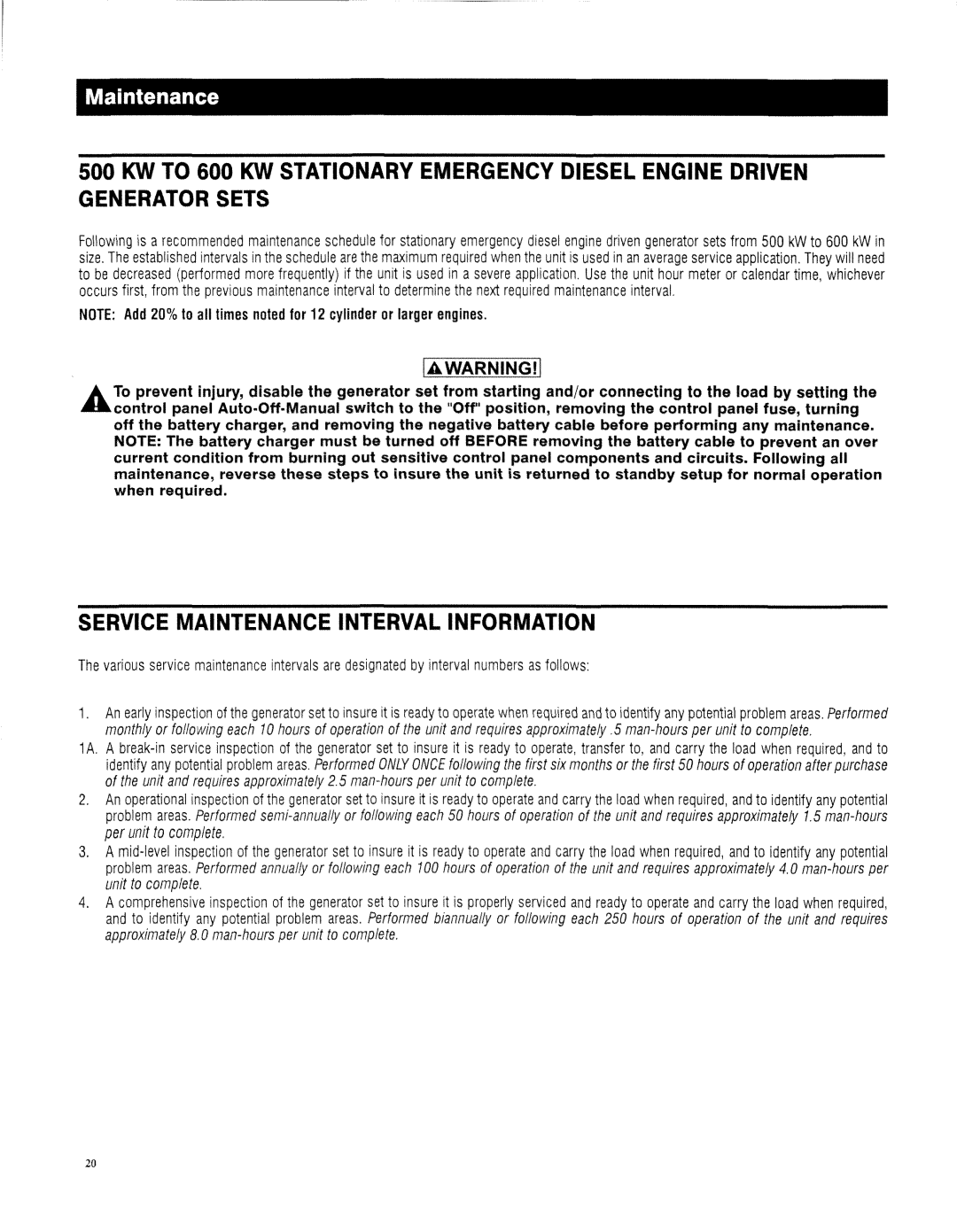
Maintenance
500 KW TO 600 KW STATIONARY EMERGENCY DIESEL ENGINE DRIVEN GENERATOR SETS
Following Is arecommended maintenance schedule for stationary emergency diesel engine driven generator sets from 500 kW to 600 kW in size. The established intervals in the schedule are the maximum required when the unit is used in an average service application. They will need to be decreased (performed more frequently) if the unit is used in a severe application. Use the unit hour meter or calendar time, whichever occurs first, from the previous maintenance interval to determine the next required maintenance interval.
NOTE: Add 20% to all times noted for 12 cylinder or larger engines.
14WARNINGll
ATo prevent injury, disable the generator set from starting and/or connecting to the load by setting the ~control panel
oft the battery charger, and removing the negative battery cable before performing any maintenance. NOTE: The battery charger must be turned oft BEFORE removing the battery cable to prevent an over current condition from burning out sensitive control panel components and circuits. Following all maintenance, reverse these steps to insure the unit Is returned to standby setup for normal operation when required.
SERVICE MAINTENANCE INTERVAL INFORMATION
The various service maintenance intervals are designated by interval numbers as follows:
1.An early inspection of the generator set to insure it is ready to operate when required and to identify any potential problem areas. Performed monthly or following each 10 hours of operation of the unit and requires approximately .5
1A. A
2.An operational inspection of the generator set to insure it is ready to operate and carry the load when required, and to identify any potential problem areas. Performed
3. A | to operate and carry the load when required, and to identify any potential | |
problem areas. Performed annually or | each 100 hours of operation of the unit and requires approximately 4. | |
unit to complete.
4.A comprehensive inspection of the generator set to insure it is properly serviced and ready to operate and carry the load when required, and to identify any potential problem areas. Performed biannually or following each 250 hours of operation of the unit and requires approximately 8.0
20
